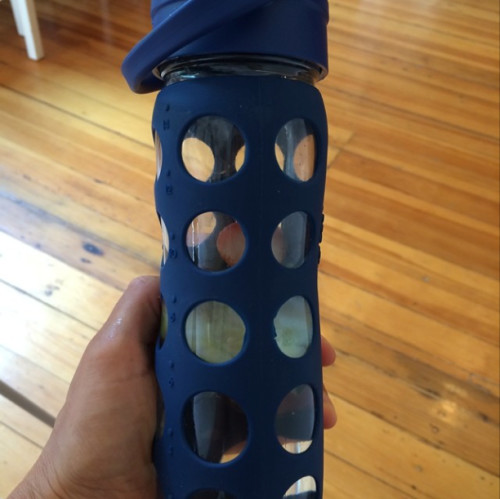Today we are proud to feature our first guest post from certified Health Coach Jocelyn Kasper, PhD, MPH. Jocelyn has spent 15 years studying cancer biology, nutrition, and epidemiology. She works at the Dana-Farber Cancer Institute and runs a private practice, Your Nourishing Life, where she helps cancer patients and their loved ones feel their best through nutrition and lifestyle adaptations. We look forward to future contributions from her on the TargetCancer Foundation blog.
One thing I have learned in my many years of working in health sciences is that when it comes to getting and staying healthy, there is no silver bullet. There is no magic food, no life-altering supplement, secret formula, no “best” way to exercise, no “best” time to exercise, no “best” time to eat.
Being healthy is a combination of being physically active, diet, habits, the environment we live in, the relationships in our lives, and genetics. Since the first five things on the list are, in fact, in our control much of the time, I would like to delve a little deeper and explore three things we can do in our everyday lives to both be healthier and feel healthier today.
1. GET SOME SLEEP
While we all know sleep is important, many more health outcomes are related to getting a good night’s sleep than most people realize. And sleep is the one thing we continually think we can cheat.
Why is sleep important? Consistently getting a good night’s sleep is associated with having energy, being able to control your weight (maintaining a healthy weight is linked to lowered risk and recurrence of cancer and other diseases), improved memory and learning functions, improved immunity and mood, aesthetic benefits (no one likes bags under their eyes), better blood sugar levels, and healthier blood pressure measurements. Aim for 7 to 9 hours a night.
How can I improve my sleep?
- Turn off screens (TV, computer, phones, etc) at least 30 minutes before getting in bed.
- Decide on a realistic and consistent bedtime and stick with it. Practice a bedtime ritual (can include breathing exercises).
- Move your body EVERY day. That means some stretching, at the very least.
- Think about and plan for environmental factors like temperature, light, noises, mattress, and the kind of pillow that works best for you.
- Skip alcohol or big meals before bed.
- Skip caffeine any time of day (you can try skipping it only after noon, but if that doesn’t work, cut it out completely).
- Write in a journal before bed. It helps banish all those thoughts that keep you awake.
- Do a full-body relaxation scan when you get into bed. That means consciously relaxing each part of your body from head to toe.
- Make note of how your sleep is related to how much you have exercised and what you have eaten in a given week and respond accordingly.
2. STAY HYDRATED
This is an easy one. You should be aiming to drink half of your body weight of water, in ounces, per day. So, if you are 150 pounds, you should aim to drink 75 ounces(just over 2 liters) of water per day.
Why? Your body is made up largely of water and it is your job to provide those much-needed molecules with hydration! Staying hydrated will not only help your brain function better, it will also help you fight fatigue, better control your appetite, boost your immune system and metabolism, lessen muscle cramps, have optimal cell repair, lead to healthier hair, nails and as one final perk – lead to more glowing skin.
But you ask – how can I drink this much?
- The best advice is to start getting hydrated early in the day. Set a glass or bottle of water on the kitchen or bathroom counter the night before and drink it first thing in the morning.
- Find a hydration-buddy, set goals together, and hold each other accountable. Someone you live with, someone you work with, even a pet (I am not kidding here — this has worked for several of my clients!).
- Link drinking water to other things so you do it consistently. For example, if you work in an office, every time you get up from your desk to go to the printer, finish your water and refill it while you are up. Or, if you drive a lot, every time you get into your car, make sure to bring a full water bottle to drink while you are driving.
- Proximity. Whether you are in a meeting, on the train, on a walk, at the gym, at home, it does not require too much planning to always have water with you. Get yourself a water bottle that you enjoy holding and drinking from—it makes a difference.
3. GET OFF SUGAR
People ask me all the time about the relationship between sugar and cancer. While the jury is still out on the precise link, one thing all doctors and scientists agree on is that sugar is not good for you. And we know for certain that obesity is linked to increased risk of many cancers. After sugar is consumed one’s blood sugar levels rise. When blood sugar levels rise, the pancreas pumps out insulin to reduce blood sugar levels. Excess insulin can lead to insulin-resistance, metabolic syndrome, fat storage, and weight gain. With the knowledge that obesity is linked to increased risk of cancer, it is very clear that the more sugar you can cut from your diet, the better.
What do I mean when I say sugar? Here are some common examples— agave, barley malt syrup, beet sugar, brown-rice syrup, brown sugar, cane sugar, corn sweetener, corn syrup, cane juice, dextrin, dextrose, fructose, fruit juice concentrate, high-fructose corn syrup, invert sugar, maltodextrin, malt syrup, maltose, mannitol, molasses, palm sugar, raw sugar, rice syrup, sorbitol, sorghum, treacle, turbinado, xylose.
What form of sugar is best? Fruit! The sugar that is in fruit is natural, not processed, and when ingested you are also getting many phytonutrients, lots of fiber, and even some water!
I have seen how hugely effective these changes are for clients and for myself! Increasing sleep and hydration while decreasing sugar consumption is a major game-changer in how you can feel in your day-to-day life. So go ahead — follow these tips for one week and watch your energy levels soar!
About me
The approach I take with my clients (whether a cancer patient, a care-giver, someone dealing with a different health issue, or trying to stay healthy) helps clients increase their body’s ability to fight disease, overcome issues of fatigue, gain appetite control and weight control, and boost their mood. I have a PhD from Harvard Medical School and Dana Farber Cancer Center as well as an MPH from Harvard School of Public Health and am certified as a Health Coach. Learn more about my practice at www.yournourishinglife.com.





